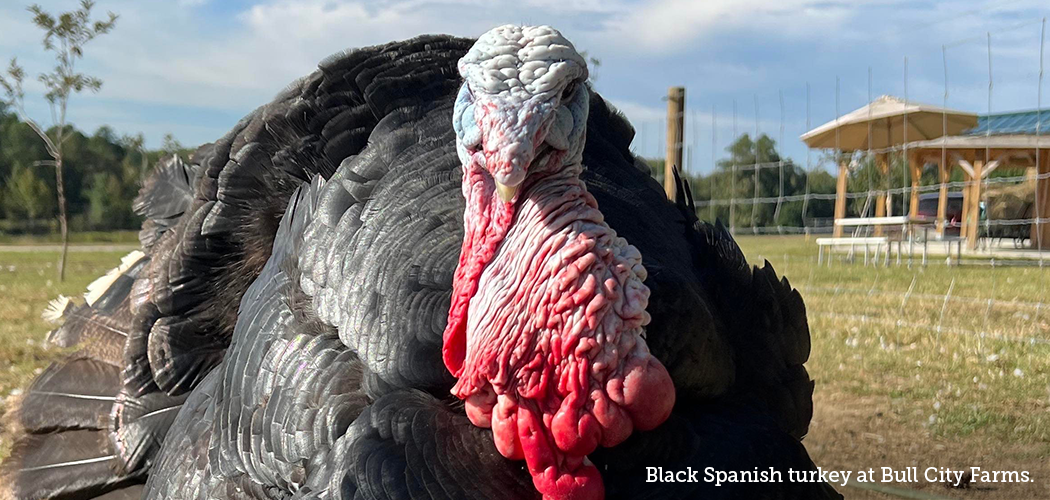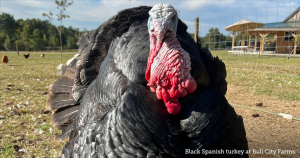Have a More Humane Thanksgiving!


While turkeys are synonymous with Thanksgiving (even though there is no record that turkey was served at the famous first Thanksgiving meal), there’s so much more to these birds that you should know:
- Turkeys are smart, sensitive and very social. In fact, they are very affectionate and create lasting social bonds with each other.
- A turkey’s head color will change from white to blue to red, depending on their emotions. White and blue means they are relaxed and content. Red means they are angry.
- Turkeys have over 20 distinct vocalizations and only male turkeys gobble. Female turkeys cluck like chickens when they have something to say, purr like cats when they are content, and yelp when they are excited or upset.
- A male turkey’s gobble can be heard over a mile away.
- You can tell if a turkey is a male or female by its poop. A male’s droppings will be shaped like the letter J. A female’s droppings are more of a spiral.
- Turkeys can hear low-frequency and distant sounds better than humans.
- Turkeys can see colors, and their eyesight spans 270 degrees. Overall, their vision is three times better than the vision of humans.
- Turkeys have beards. They are actually modified feathers that form bristles or filaments. Their beards can grow up to five inches each year.
- Turkeys can run up to 25 miles per hour.
- Turkeys can learn and remember the details of an area over 1,000 acres large.
With all these interesting facts about turkeys, there are some that are troubling:
- Turkeys raised on factory farms–industrial facilities that raise large numbers of animals in intensive confinement–are so packed together in barren sheds that they are not able to run, explore, socialize or engage in almost any of their natural behaviors.
- Today’s modern turkey is bred to provide an unnatural amount of meat. The weight of the average turkey raised for food in the U.S. has more than doubled: from 13 to 30 pounds since 1930. This intentional breeding for breast-heavy birds prevents turkeys from flying and causes painful physical ailments, trouble walking and breathing difficulties.
- Factory-farmed turkeys are now so disproportionately shaped that they can no longer mate with one another naturally and must be artificially inseminated.
- Turkeys raised in barren factory farms have the tips of their beaks cut off to reduce harmful feather-pecking of their flock mates, which unfortunately happens when large numbers of birds have absolutely nothing else to do.
The good news is you don’t have to support factory farms at Thanksgiving or any time of year. The ASPCA lists all of the widely available, welfare-certified turkey brands and some very tasty plant-based turkey products on our Shop With Your Heart Grocery List, or you can search for welfare-certified farms near you on the Shop With Your Heart list of certified farms.
This Thanksgiving, consider centering plant-based or genuinely higher-welfare turkey in your holiday meal, because our individual power to end factory farming is something we can all give thanks for.
Source: Read Full Article
